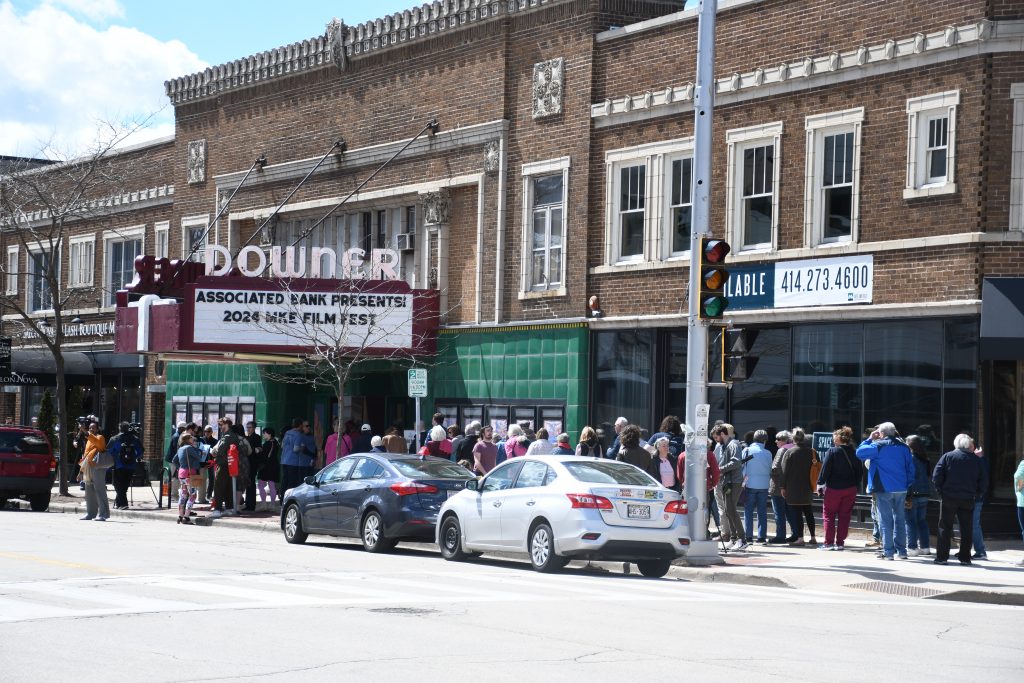Action! Bipartisan Proposal Calls For 30% Film Tax Credit
Wisconsin is 1 of 13 states without tax incentives for film or TV productions.
Two similar proposals in Wisconsin aim to attract more film and TV crews to the state.
Wisconsin is one of four states that doesn’t have a dedicated film office and one of 13 that doesn’t offer tax incentives for film or TV productions, according to the advocacy group Action! Wisconsin.
Gov. Tony Evers’ 2025-27 budget proposal calls for reviving tax credits for film production companies. It also calls for the creation of a state film office.
“It’s a good investment that works out for Wisconsin, helps our economic development, gets more people interested in coming here, and it’s an investment worth making,” Evers wrote in a statement about the proposal.
A similar bill with bipartisan support was recently introduced by state lawmakers.
Action! Wisconsin, a statewide coalition of filmmakers and producers, supports the measures.
“Any studio or production company, their No. 1 factor in deciding where to film is what is the tax incentive program,” said Jeffrey Kurz, a member of the group.
Wisconsin had an incentive program in the past. But the program was discontinued in 2013, five years after it was put in place.
Kurt Ravenwood, the producer of the independent comedy “Hundreds of Beavers” said he would like to see more production in the state.
“We need the tax credits to bring those people here,” Ravenwood said. “And then it’s great because they’re coming in, and they’re spending all the money that you spend on a shoot, which trickles over to hotels and restaurants and bars.”
Ravenwood has been pitching production companies to come to Wisconsin. But he said it has been a difficult ask with no film tax incentive program in the state.
“I would just love to shoot in my own backyard,” he said. “I’d love to be near my family when I’m making movies.”
Milwaukee was recently the filming location of the popular cooking show “Top Chef.” According to a statement from Action! Wisconsin, the crew’s two-month stay resulted in hotel night stays generating nearly $4 million.
Kurz said the film crew for “A Cherry Pie Christmas,” which was shot in Door County recently, spent $600,000 in the area during the three weeks of production.
“It really represents an economic growth opportunity for the state that really doesn’t exist right now,” Kurz said.
A 2023 study in Georgia found for every $1 invested in film and television incentives in the state, there was $6.30 of economic benefit.
Illinois brought in $653 million in film production revenue in 2024, along with estimated wages of $351 million and 18,200 estimated industry jobs, according to the the Illinois Department of Commerce and Economic Opportunity.
Supporters of the incentives in Wisconsin argue an incentive program will help keep talent in the state. Tim Schwagel, a filmmaker from Eau Claire, said he knows filmmakers who have left Wisconsin for better opportunities elsewhere.
“Because there’s nothing going on here, and it’s pretty much impossible to make a proper living doing any kind of narrative film in the state,” Schwagel said.
Kurz said about 500 film students graduate from the University of Wisconsin — Milwaukee every year.
“So we have a ready workforce to be able to work on movies and television series, but because there aren’t the opportunities that exist in other states, they’re going to be going elsewhere to where they can live and work and pay taxes, and we want to stop the brain drain,” Kurz said.
Evers’ budget proposal calls for the creation of the state Office of Film and Creative Industries, which would “provide centralized support and drive economic growth in Wisconsin’s film and creative sectors,” according to his budget proposal.
The state bill calls for the creation of a “State Film Office.”
Evers’ proposal calls for a 25 percent tax credit for salaries and wages for film production services and a 25 percent tax credit for production costs.
“The governor remains hopeful that Republican lawmakers on the state’s budget committee will pass his budget proposal, and that there will be bipartisan support on this important work this legislative session,” a spokesperson for the governor said.
The bipartisan bill calls for a 30 percent tax credit for salaries and wages for employees for film production services and a 30 percent tax credit for production costs.
Both the bill and the budget proposal would cap the credits at $10 million a year.
Wisconsin Rep. David Armstrong, R-Rice Lake, the bill’s co-author, said the 30 percent tax credit was selected to stay in line with other states’ programs.
“If we want to be in like the top eight or so states in the country, we had to be at that 30 percent,” Armstrong said.
Armstrong said he’s not confident the Legislature’s Joint Finance Committee will pass the governor’s proposal. Rep. Mark Born, R-Beaver Dam, who co-chairs the Joint Finance Committee, didn’t respond to a reporter’s request for comment for the story.
Wisconsin proposals call for creation of state film office, tax incentives for film production was originally published by Wisconsin Public Radio.
If you think stories like this are important, become a member of Urban Milwaukee and help support real, independent journalism. Plus you get some cool added benefits.























500 film student per year at UWM? Is that correct?